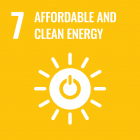How can we optimise the plastics value chain in the agri-food industry?

It is often said that the human construction visible from space is the Great Wall of China. However, Spanish astronaut Pedro Duque has claimed that the first thing he has been able to see with the naked eye from space is a white spot in south-eastern Spain.
It is the plastic coverings of more than 32,000 hectares of greenhouses located in Almeria. These covers are designed to ensure optimal growing conditions for strawberries, peppers, tomatoes, courgettes, watermelons and melons, which are then consumed throughout Europe.
Phileas Flow’s challenge is to offer a second life to the plastic used in agricultural production throughout Spain by proposing new uses for this material. In this way we want to promote new lines of business for the participants and Byproductplace, by generating new uses and solutions for the different types of plastic waste used in greenhouses.
In Spain, due to inefficient plastics management in the agro-industrial sector, 800 million euros are lost annually. 85% of the agri-food production is located in Almeria. For this reason, the company Almerience Byproductplace has invited us to look for solutions that revalue the plastic waste generated as a result of the crops grown in the region. These solutions have the potential to be implemented throughout Spain and in other agricultural regions using greenhouse agriculture.
The plastics used in this sector are diverse and each one presents specific characteristics and problems to be solved depending on the case. The materials considered in these challenges are high density polyethylene (HDPE), low density polyethylene (LDPE), polypropylene (PP), polyethylene terephthalate (PET) and polystyrene (PS).
Our aim is also to make the end consumer aware of the environmental impact of plastic used in the agri-food industry. In particular, we would like to raise awareness about the negative impact it has on the oceans.
Today, only 9% of all plastic produced and consumed worldwide has been recycled, 12% has been incinerated, and the vast majority, 79%, has ended up in landfills or in the environment. Eighty per cent of the waste we find at sea comes from land, while the remaining 20 per cent comes from maritime activity.
The challenge thus posed falls within the framework of the following Sustainable Development Goals (SDGs) of the 2030 Agenda proposed by the United Nations:
SDG 7: Ensure access to affordable, safe, sustainable and modern energy for all.
SDG 9: Build resilient infrastructure, promote inclusive and sustainable industrialisation and foster innovation.
SDG 12: Ensure sustainable consumption and production patterns.
SDG 14: Conserve and sustainably use oceans, seas and marine resources.
– Your research project is in the market launch phase to offer solutions to the problems raised.
– Your Research, Development and Innovation team is looking for new synergies with the Almeria agri-food sector.
– You are looking for synergies with other economic sectors for hybrid collaborations.
– You have business solutions to allocate the money that is lost in new approaches to efficiency in materials and processes.
– You have technological solutions for the optimisation of the dispersion in the supply and demand of plastic used in greenhouses.
– You are a researcher or part of a university research group and you can offer solutions to the challenge posed.
– You belong to a company with a research group looking for synergies with Byproductplace.
– Biochemical professionals working in the treatment of plastic waste.
– Environmental consultants who know or have worked on the mentioned plastic waste and are able to offer alternative solutions to the challenge.
Please, complete the form below with the following information:
– In the “Name” field, complete: university, company or research group.
– In the “Email” field, the team manager’s email.
– In the field “Message”, description of the solution. (maximum of 300 characters) Differential factors and innovation contributed. A contact telephone number.
Not sure which tools to use? Try one of these.
Zoom / Slack / Notion / Trello
Please complete the form mentioning the challenge you wish to participate in

What measures can we as a society take to mitigate the effects of climate change on access to water in Seville?

How can we create circular ecosystems that reduce the Materials’s consumption and convert waste into resources?
| Cookie | Duration | Description |
|---|---|---|
| cookielawinfo-checkbox-analytics | 11 months | This cookie is set by GDPR Cookie Consent plugin. The cookie is used to store the user consent for the cookies in the category "Analytics". |
| cookielawinfo-checkbox-functional | 11 months | The cookie is set by GDPR cookie consent to record the user consent for the cookies in the category "Functional". |
| cookielawinfo-checkbox-necessary | 11 months | This cookie is set by GDPR Cookie Consent plugin. The cookies is used to store the user consent for the cookies in the category "Necessary". |
| cookielawinfo-checkbox-others | 11 months | This cookie is set by GDPR Cookie Consent plugin. The cookie is used to store the user consent for the cookies in the category "Other. |
| cookielawinfo-checkbox-performance | 11 months | This cookie is set by GDPR Cookie Consent plugin. The cookie is used to store the user consent for the cookies in the category "Performance". |
| viewed_cookie_policy | 11 months | The cookie is set by the GDPR Cookie Consent plugin and is used to store whether or not user has consented to the use of cookies. It does not store any personal data. |